Meet the world’s most isolated Jewish communities
Stephen Oryszczuk meets Jono David, who spent four years visiting the world’s most isolated Jewish communities
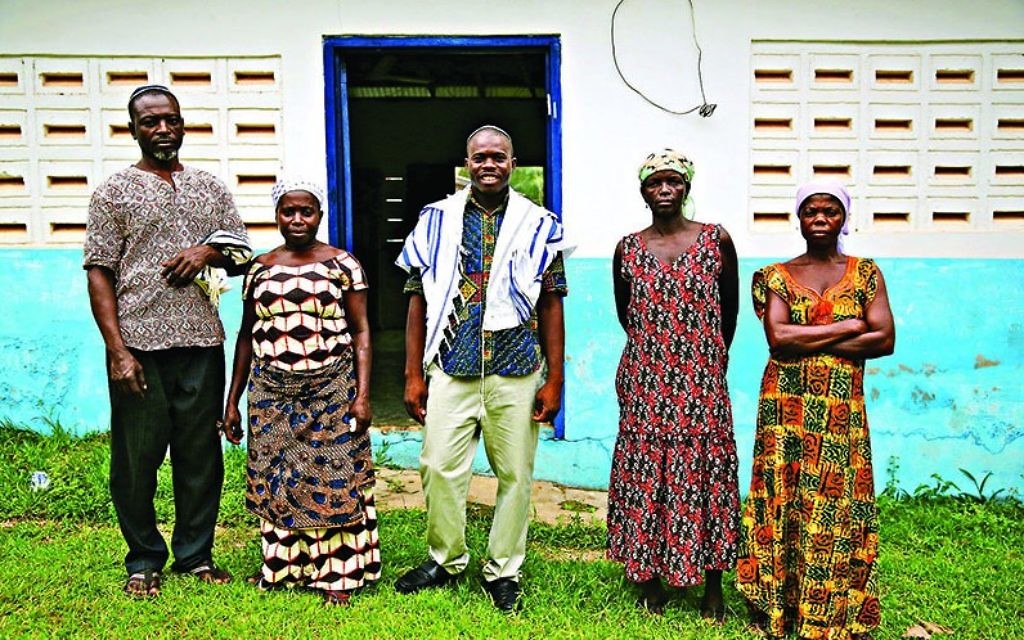
British-born Jono David looks like a man just back from a four-year foray through the heart of Africa to photograph the world’s newest Jewish communities.
Raised in Washington D.C., he has lived and lectured in Japan for the past 23 years, and exudes Zen, which would come in handy for a trek through the jungle on your way to meet black African Jews unknown to most of the Jewish world.
Yet this is what he has been doing since 2012, diving off on a self-funded project during every eight-week university recess he got (roughly two a year).
Get The Jewish News Daily Edition by email and never miss our top stories Free Sign Up
Now, finally, he has finished, having travelled to 30 countries, taken 60,000 snaps and learnt a few things.
His exhibition – called The Children of Abraham and Sarah – is showing until December at Beit HaTfutsot, the Museum of the Jewish People, in Tel Aviv, before the work travels to Morocco and Washington, DC, but it is in Kentish Town that we meet, and he describes his journey.
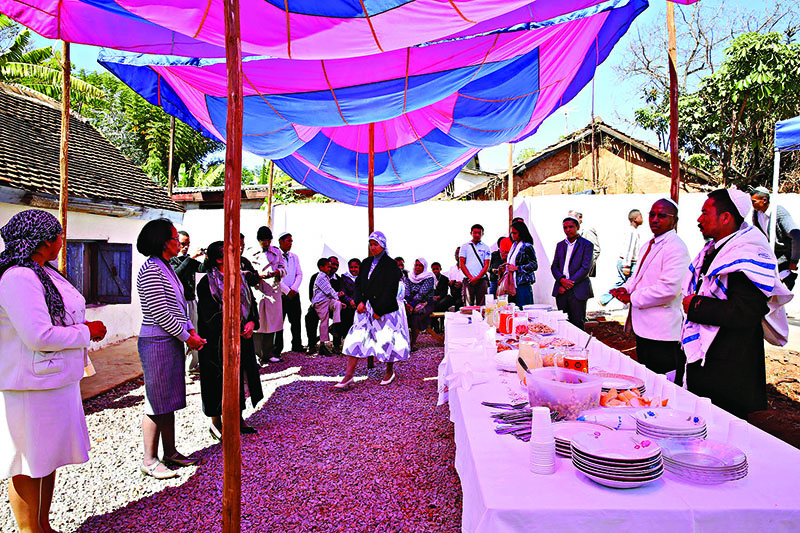
When we think of Jews, we don’t typically think of Africa, I suggest. As it happens, says David, in Africa being Jewish is less strange than being atheist.
“African people, by and large, are very religious people,” he explains. “If you don’t believe in anything, you’re seen as a true outsider.”
So Africans accept it when you say they’re Jewish? “Yes,” he says. “These Jewish communities don’t have any difficulty from local or federal authorities, or even from local people. There’s a tolerance.”
That is evident from the complete lack of security at Jewish communal buildings or synagogues across the continent, he says, with the exception of places like South Africa, where security is needed as much for the high crime rate as for any anti-Semitism.
Still, there are places in Africa where safety was clearly an issue during his trip.
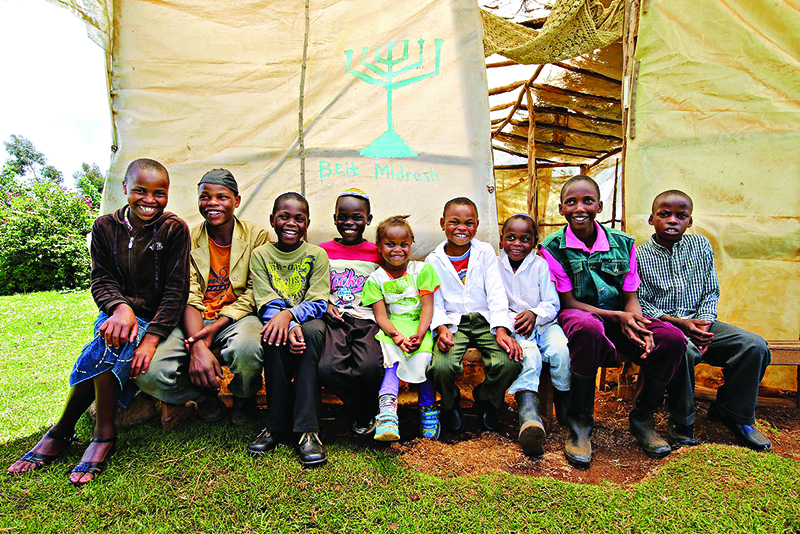
While exploring the Jewish communities in Nigeria and Egypt, for example, he says he needed a guard, while the leader of the remnant of Egypt’s once-huge Jewish community (now about 14 people) wouldn’t even talk to him without ministerial clearance.
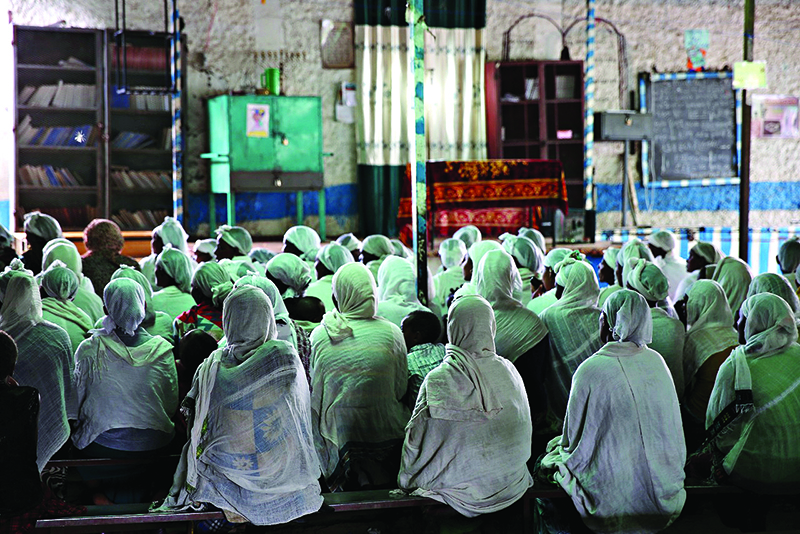
Beyond that, there is the question of “who is a Jew?”. This is often raised in the context of Africa, due to the high percentage of conversions through various denominations.
David says he set himself a “simple parameter” for the emerging Jewish communities he covered.
“They had to have disavowed any allegiance to any other religions they previously followed, whether they be Christianity or a tribal or local religion,” he said. “The groups I photographed followed only Judaism. I wasn’t interested in any Messianic or mixed-belief groups.”
He says some groups, although they are not recognised as Jewish by the Israeli religious establishment, have been DNA tested, and have genetic markers linking them to the Kohanim, the Jewish priests.
Likewise, David rebuffs the idea that some might be converting to Judaism to improve their chances of moving to Israel. “Maybe one or two, but I didn’t get that sense at all of ulterior motives, of trying to find an alternate path of getting to Israel,” he says firmly.
“I got the sense that they just want to develop, learn and to become community members of the greater world Jewish community. They really believed in the tenets of Judaism.”
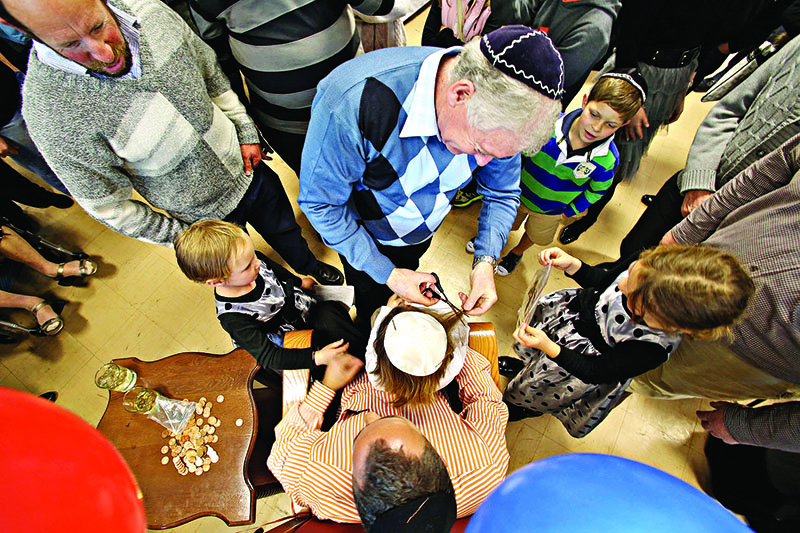
While some groups such as the diverse and scattered Lemba in Zimbabwe are isolated and others are makeshift (in Cameroon, the community centre/synagogue is somebody’s house), many are connecting, he says, and most are centrally located in the countries, whether that be in Cameroon or Kenya. “They’re not all far-flung and rural. They’re not hiding away. They’re all open. Some groups have even emerged since I was there,” he says.
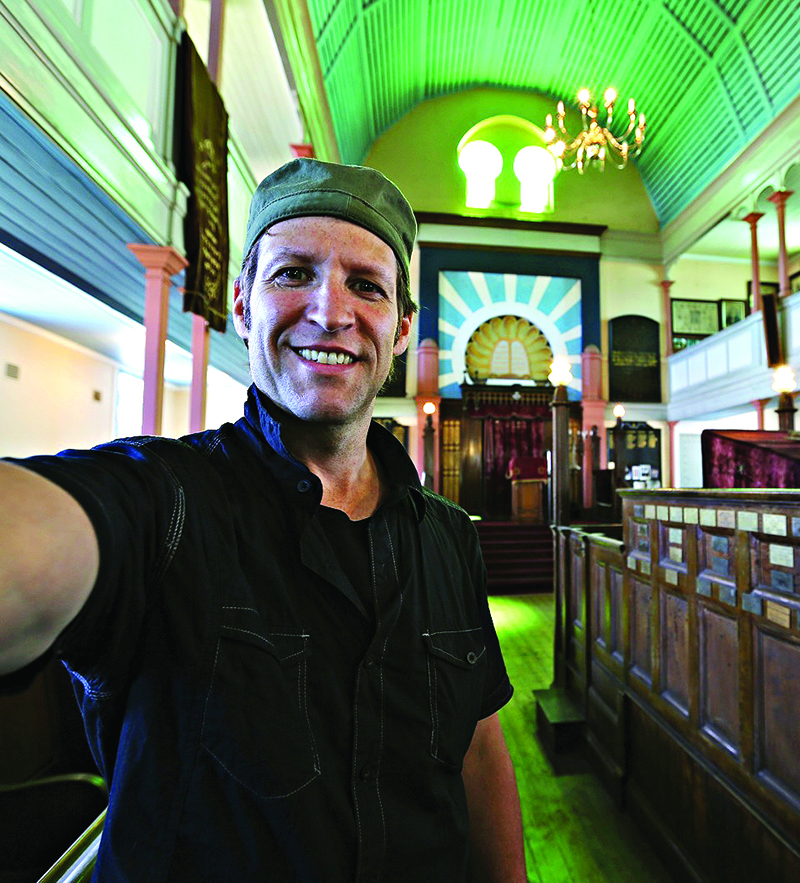
Alongside the more established communities, such as in South Africa and Djerba, David sought out the newest communities in places like Madagascar and Gabon, which is only two years old, and not yet converted.
Then there are the Abayudaya of Uganda, perhaps the most interesting among Africa’s Jewish communities, who have followed Judaism since the early 20th century.
“Their leader at that time, who had been reading the Bible, declared his community Jewish, circumcised his son then circumcised himself,” David explains. “That’s commitment, eh?”
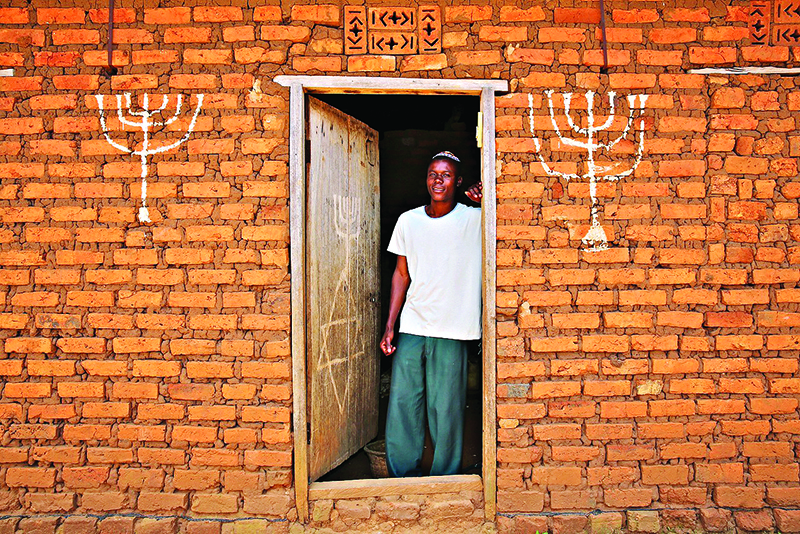
Over the years, foreign Jews – often lone travellers – introduced the Abayudaya to Jewish rituals of which they weren’t aware, and during Ugandan dictator Idi Amin’s era the community was persecuted, but it survived, and in 2003, their leader went to Los Angeles to study at rabbinical school and become ordained as a conservative (Masorti) rabbi.
Now there’s a yeshiva in amongst a collection of nine villages. But whereas most of the Abayudaya are conservative, two or three villages want to be recognised as Orthodox, which “is causing a bit of a schism”.
It all sounds very Jewish. Indeed, many of David’s photos capture animated conversation, with gesticulations and arm-waving.
It seems old habits die hard.
The exhibition Children of Abraham: A Jewish Revival in Africa can be seen at The Museum of the Jewish People at Beit Hatfutsot in Tel Aviv. For more information please visit: http://www.bh.org.il/

Thank you for helping to make Jewish News the leading source of news and opinion for the UK Jewish community. Today we're asking for your invaluable help to continue putting our community first in everything we do.
For as little as £5 a month you can help sustain the vital work we do in celebrating and standing up for Jewish life in Britain.
Jewish News holds our community together and keeps us connected. Like a synagogue, it’s where people turn to feel part of something bigger. It also proudly shows the rest of Britain the vibrancy and rich culture of modern Jewish life.
You can make a quick and easy one-off or monthly contribution of £5, £10, £20 or any other sum you’re comfortable with.
100% of your donation will help us continue celebrating our community, in all its dynamic diversity...
Engaging
Being a community platform means so much more than producing a newspaper and website. One of our proudest roles is media partnering with our invaluable charities to amplify the outstanding work they do to help us all.
Celebrating
There’s no shortage of oys in the world but Jewish News takes every opportunity to celebrate the joys too, through projects like Night of Heroes, 40 Under 40 and other compelling countdowns that make the community kvell with pride.
Pioneering
In the first collaboration between media outlets from different faiths, Jewish News worked with British Muslim TV and Church Times to produce a list of young activists leading the way on interfaith understanding.
Campaigning
Royal Mail issued a stamp honouring Holocaust hero Sir Nicholas Winton after a Jewish News campaign attracted more than 100,000 backers. Jewish Newsalso produces special editions of the paper highlighting pressing issues including mental health and Holocaust remembrance.
Easy access
In an age when news is readily accessible, Jewish News provides high-quality content free online and offline, removing any financial barriers to connecting people.
Voice of our community to wider society
The Jewish News team regularly appears on TV, radio and on the pages of the national press to comment on stories about the Jewish community. Easy access to the paper on the streets of London also means Jewish News provides an invaluable window into the community for the country at large.
We hope you agree all this is worth preserving.
- Features
- hidden Jewish communities
- African Jewry
- African Jews
- Uganda
- Ghana
- Zimbabwe
- South Africa
- New York
- The Children of Abraham and Sarah
- Beit HaTfutsot Museum of the Jewish People
- tel aviv
- Morocco
- Washington DC
- Kentish Town
- Jewish
- nigeria
- egypt
- Africa
- christianity
- messianic jews
- Kosher Culture
- Antisemitism
-
By Laurent Vaughan - Senior Associate (Bishop & Sewell Solicitors)
-
By Laurent Vaughan - Senior Associate (Bishop & Sewell Solicitors)
-
By Laurent Vaughan - Senior Associate (Bishop & Sewell Solicitors)
-
By Laurent Vaughan - Senior Associate (Bishop & Sewell Solicitors)





















